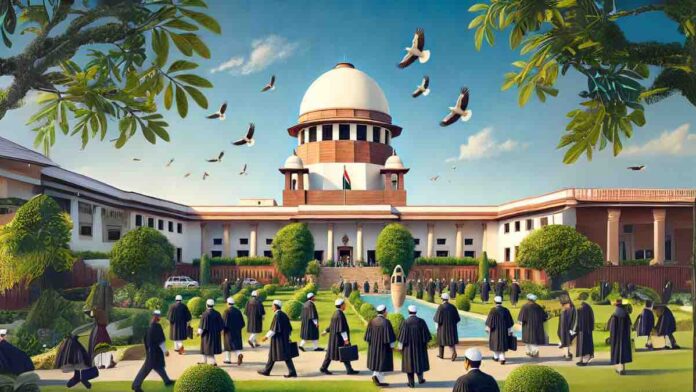The Supreme Court of India has ruled that a High Court cannot invoke its supervisory jurisdiction under Article 227 of the Constitution to reject a plaint, reaffirming that such action falls within the original jurisdiction of trial courts under the Code of Civil Procedure, 1908. The judgment came in the case of K. Valarmathi &
To Read More Please Subscribe to VIP Membership for Unlimited Access to All the Articles, Download Available Copies of Judgments/Order, Acess to Central/State Bare Acts, Advertisement Free Content, Access to More than 4000 Legal Drafts( Readymade Editable Formats of Suits, Petitions, Writs, Legal Notices, Divorce Petitions, 138 Notices, Bail Applications etc.) in Hindi and English.




